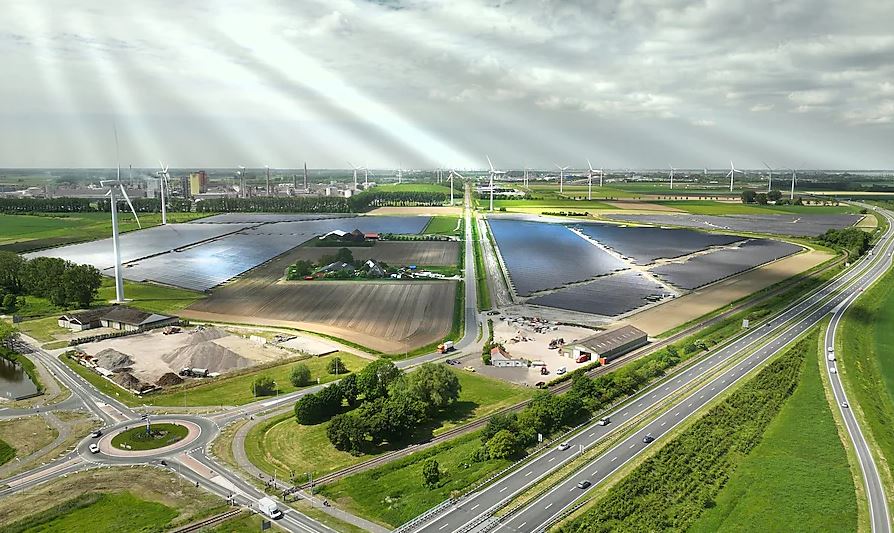The Netherlands – Shell, in collaboration with the municipality of Terneuzen and other partners, has opened the Koegorspolder solar park.
Shell has the largest solar park in Europe, with a total of 128,304 solar panels and a peak capacity of 71.1 megawatts, located in the Netherlands.
Zeeland’s efforts to meet its climate targets will be greatly aided by the Koegorspolder solar park. The Koegorspolder solar park, along with the Sas van Gent-Zuid solar park, which opened in March 2022, makes up half of the 200 MW solar energy target set by the municipality of Terneuzen until 2030. Among other things, the electricity generated will contribute to the industry’s increased sustainability.
The Koegorspolder Solar Park will gradually open for business. Prior to assuming control and eventually becoming the owner, Shell collaborated on its initial development with SolarEnergyWorks, a solar developer. On May 16, 2022, Shell began building. This summer, the solar park generated its first electricity, and final testing is under underway. By the end of this year, the solar park should be fully operating.
Innovative solution
Koegorspolder’s link to the current power networks rather than the creation of a new one is one of its distinctive features. This aids in avoiding “traffic jams” on the electrical grid, or grid congestion. The solar park’s southwest section, Sluiskil, is connected to the Yara Sluiskil grid connection, while the northeastern portion, Tractaatweg, is connected to the electricity grid connection of the neighboring Koegorspolder wind farm.
Similar to the Sas van Gent-Zuid solar park, Shell is utilizing the Koegorspolder to put its practical knowledge of biodiversity from other Dutch solar parks to use. Here, ecologists have been involved from the start. To allow more area for the grassland with abundant flowers and herbs beneath the solar panels, for instance, they have been positioned farther apart than they were previously. Additionally, the grass beneath the panels proves to be highly nourishing for grazing animals like mice or sheep.
On and surrounding the solar park, a so-called “Temporary Nature Zone” has been established in collaboration with North Sea Port, the Zeeland Environmental Federation, Yara Sluiskil, and Shell. Peregrine falcons, who are able to control the pigeon population, will benefit from this. The fruit orchards are fertilized by bees, and additional native flora from Zeeland will be found in the solar park.
Shell will give one thousand euros per megawatt-year for a period of fifteen years to the sustainability fund of the municipality of Terneuzen. This fund seeks to implement projects and quicken Terneuzen’s transition to sustainable development.
The environmental permit stipulates a 25-year maximum stay for the solar park. Following that, Shell will take down the solar park’s installations and restore the area to its pre-crisis condition.





